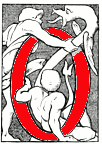[Spencer's "On Manners and Fashion" originally appeared in the April 1854 Westminster Review. This text has comes from the Project Gutenberg online version of the Everyman edition — George P. Landow]

ur social intercourse, as commonly managed, is a mere semblance of the reality sought. What is it that we want? Some sympathetic converse with our fellow-creatures: some converse that shall not be mere dead words, but the vehicle of living thoughts and feelings—converse in which the eyes and the face shall speak, and the tones of the voice be full of meaning—converse which shall make us feel no longer alone, but shall draw us closer to another, and double our own emotions by adding another's to them. Who is there that has not, from time to time, felt how cold and flat is all this talk about politics and science, and the new books and the new men, and how a genuine utterance of fellow-feeling outweighs the whole of it? Mark the words of Bacon:—"For a crowd is not a company, and faces are but a gallery of pictures, and talk but a tinkling cymbal, where there is no love."
If this be true, then it is only after acquaintance has grown into intimacy, and intimacy has ripened into friendship, that the real communion which men need becomes possible. A rationally-formed circle must consist almost wholly of those on terms of familiarity and regard, with but one or two strangers. What folly, then, underlies the whole system of our grand dinners, our "at homes," our evening parties—assemblages made up of many who never met before, many others who just bow to each other, many others who though familiar feel mutual indifference, with just a few real friends lost in the general mass! You need but look round at the artificial expressions of face, to see at once how it is. All have their disguises on; and how can there be sympathy between masks? No wonder that in private every one exclaims against the stupidity of these gatherings. No wonder that hostesses get them up rather because they must than because they wish. No wonder that the invited go less from the expectation of pleasure than from fear of giving offence. The whole thing is a gigantic mistake—an organised disappointment. . . .
There needs, then, a protestantism in social usages. Forms that have ceased to facilitate and have become obstructive—whether political, religious, or other—have ever to be swept away; and eventually are so swept away in all cases. Signs are not wanting that some change is at hand. A host of satirists, led on by Thackeray, have been for years engaged in bringing our sham-festivities, and our fashionable follies, into contempt; and in their candid moods, most men laugh at the frivolities with which they and the world in general are deluded. Ridicule has always been a revolutionary agent. That which is habitually assailed with sneers and sarcasms cannot long survive. Institutions that have lost their roots in men's respect and faith are doomed; and the day of their dissolution is not far off. The time is approaching, then, when our system of social observances must pass through some crisis, out of which it will come purified and comparatively simple.
Related material: Examples from the Novelists and Artists
- Thackeray: “And to think that all these people might be so happy, and easy, and friendly”
- Trollope: Lady Pomona’s Dinner Party
- Trollope: The Dinner for the Emperor of China from The Way We Live Now
- Melmotte Tries to Seat Himself Close to the Guest of Honor (Trollope)
- Dickens: “This evening the Veneerings give a banquet”
- Dickens: “Tureens of soup are emptied with awful rapidity”
- Dickens: “The Toast-Master”
- Carroll: "Alice--Mutton: Mutton--Alice": Parodies of Protocol in Through the Looking Glass
- Bulwer: Diomed’s Banquet
- The Lord Mayor’s Banquet
- Collins: The dinner party with guests in full evening dress
Related Materials: More of Spencer on Society and the Need for Satire
- Social Satire
- From Empty Titles to Inane Fashion
- The Necessary Obnoxiousness of Reform and Reformers
Bibliography
Spencer, Herbert. "On Manners and Fashion." Essays on Education and Kindred Subjects. London: Dent/Everyman, 1966.
Last modified 17 November 2019